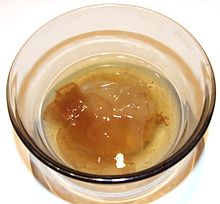I have had really bad heartburn for a few years. When I go to bed it is even worse laying down on my left side. I have been taking Prilosac and a few other medicines for it and they work when taking them, but it comes back soon as I stop.
Not being one to like pills, I sought an alternative. Found two that work really well and have all but cured the problem. Eat an apple soon as you recognize the problem. Also natural cider vinegar, 2 tsp in a glass of water along with 1 tblsp of honey. The apple is instant the cider vinegar long lasting.
My brother has the exact same problem and it cured him as well. Have told several people and they can't believe the results. Cheap, easy, natural, and works better then the medicines.
Mom was right, "an apple a day keeps the doctor away"
Not being one to like pills, I sought an alternative. Found two that work really well and have all but cured the problem. Eat an apple soon as you recognize the problem. Also natural cider vinegar, 2 tsp in a glass of water along with 1 tblsp of honey. The apple is instant the cider vinegar long lasting.
My brother has the exact same problem and it cured him as well. Have told several people and they can't believe the results. Cheap, easy, natural, and works better then the medicines.
Mom was right, "an apple a day keeps the doctor away"

